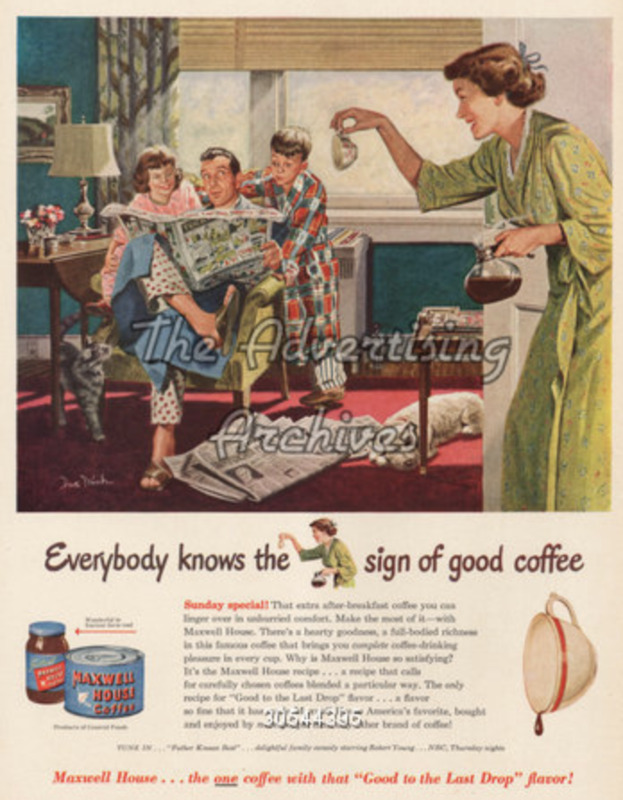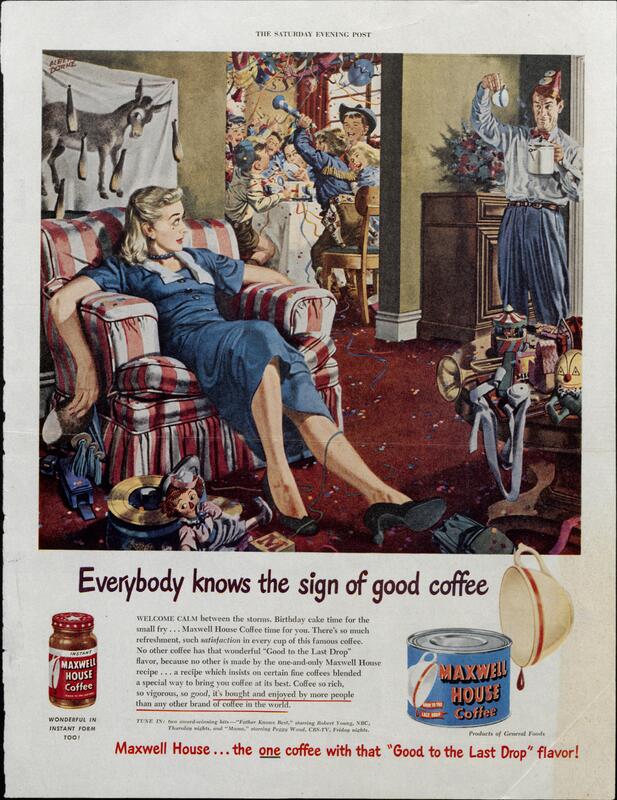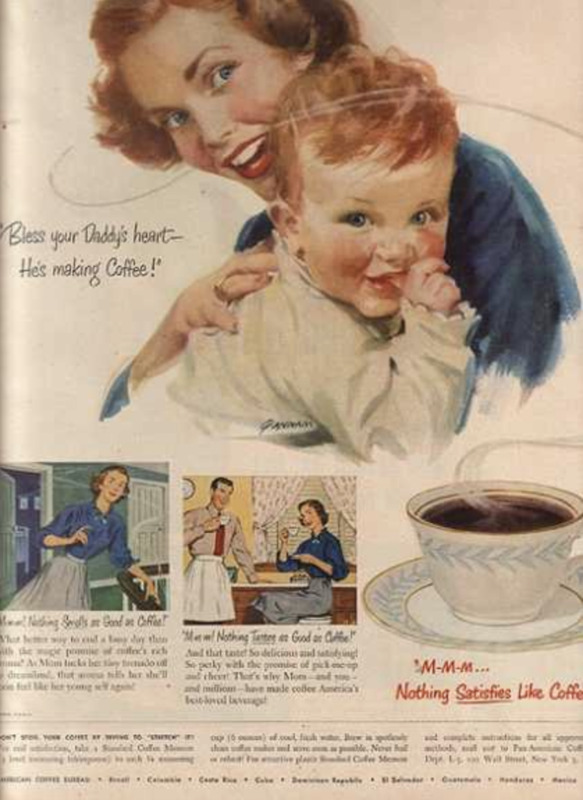Children as Passive Participants in Gendered Coffee Advertisements
In the 1940s and 1950s, children were inherently linked with domesticitiy. Because children were a woman’s responsibility, when shown in the presence of coffee, the two were associated together and in this way, coffee became something that is feminized even further.
In this advertisement from the 1940s by Maxwell House Coffee, a woman holds a coffee pot and a coffee cup and tries to lure her husband away from the chair he is sitting in while reading a newspaper with two children leaning over him. It is presumably Sunday based on the text in the advertisement (“Sunday special!”) and the fact that the family is still in pajamas, but the woman has clearly still taken the time to make coffee for her husband. She only holds one coffee cup, which means that she has made it specifically for him, and his facial expression suggests that he is excited for his morning cup, perhaps that he is served every Sunday morning.
Without the children in the advertisement sitting on their father’s lap, the advertisement still would have reflected the domestic association with coffee making, but it would not have been as strong. Children imply that there would be more work for the mother, and when the husband goes to retrieve his coffee, the woman will have to return to taking care of the children. Therefore, the coffee creates two levels of work for the woman: the act of making the coffee and the act of having to take care of the children immediately afterwards. Therefore, coffee and children reinforce each other's roles in upholding domesticity.
This advertisement, also for Maxwell House Coffee and presumably around the same time period, centers a man and woman who look to be taking a break while many children play what looks like a birthday party in the background (given the balloons, streamers, and pin-the-tail-on-the-donkey game). The parents of the child with the party look at each other with tired expressions, although the woman looks more exhausted than the man. This was probably because she spent more time planning and organizing the party than her husband did. The man holds a coffee pot and mug as if to indicate to his wife that coffee will help her feel more energized. He seems to expect that she will use the coffee to continue to have the energy to take care of the children at the party.
Furthermore, even though the man is holding the coffee, it is still more likely that the woman actually made it. Therefore, the children create more work for the woman and in doing so create a need for caffeine and therefore more work involved in making the coffee. This contributes to a circular effect, which Maxwell House capitalizes on. The effect is so subtle, however, that many viewers would likely not pick up on it.
In this 1950s advertisement by the Pan American Coffee Bureau, a woman holds her young child and says, “Bless your Daddy’s heart—He’s making Coffee!” Although the woman is not making coffee in this image, it suggests that there is something unique and out of the ordinary about a man making coffee while she takes care of the baby. The two subsequent images depict the woman running downstairs to join her husband for coffee.
The text in the advertisement references “Mom” twice, emphasizing that the role of the woman is to be a mother, which influences all of her daily choices. The audience of the advertisement would likely be women, but it suggests that these women’s appeal is in their motherhood. In this way, coffee reinforces the idea that a woman’s power is in her ability to be a mother, which aligns with Parkin’s first strategy of food marketing for women about women’s power in her cooking. However, since her husband actually made the coffee in this instance, the advertisement almost undermines women’s power and suggests that the featured woman is not doing her job.



